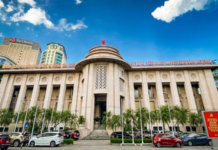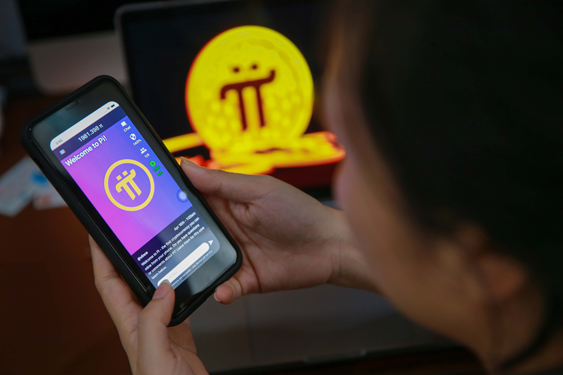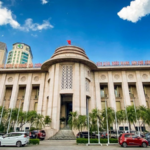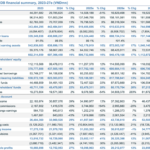On August 1, Prime Minister Pham Minh Chinh signed Decision No. 1646/QD-TTg, officially establishing the Steering Committee for the International Financial Center in Vietnam, with the Prime Minister himself as the head. On the same day, the Action Plan for the development of the International Financial Center was also issued, aiming to establish and operate the center in Ho Chi Minh City and Da Nang, the country’s two economic powerhouses, by the end of 2025.
A Major Step Forward
To materialize this orientation, the Ministry of Finance submitted to the Government a draft resolution on the pilot program of the asset-tokenized exchange in the International Financial Center, with blockchain identified as the core technology for the operation and supervision of the trading system. According to the draft, organizations providing services are given more autonomy in choosing cryptocurrencies for listing and trading. This flexible approach is expected to facilitate the proactive, dynamic, and creative participation of market players.
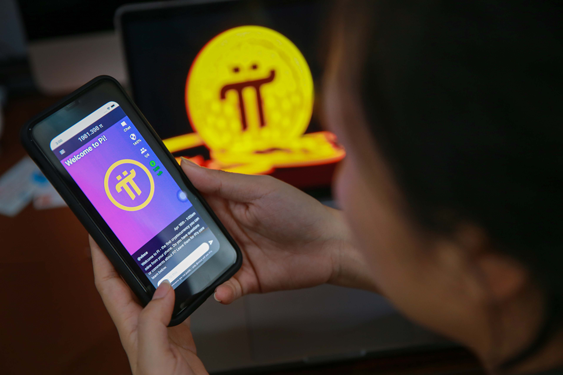
Experts recommend establishing specific criteria for selecting qualified coins for listing, instead of allowing enterprises to create and sell coins indiscriminately. Photo: HOANG TRIEU
The introduction of the asset-tokenized exchange for pilot testing is considered a significant step forward, offering legal trading opportunities for citizens. However, concerns related to security, technical issues, and the possibility of being lured by low-quality projects have made many cautious. Mr. Nguyen Hoang Nam, a digital currency investor in Ho Chi Chi Minh City, questioned whether there would be any protective mechanism to prevent fraud or asset loss if the exchange allowed trading of all types of cryptocurrencies.
These concerns are not unfounded. According to Ivy, a digital asset media company based in Vietnam, nearly half of investors with monthly incomes below $500 suffered losses in the cryptocurrency market. Specifically, 47.3% of respondents in the survey lost money investing in digital assets, mainly due to following trends and believing in “fevers” without sufficient knowledge and risk prevention tools.
According to CoinMarketCap, the global cryptocurrency market currently has over 19 million types, with a total capitalization of up to $3.72 trillion. Bitcoin leads with over $2.278 trillion, followed by Ethereum, XRP, USDT, BNB, and many others. However, not all of them meet the requirements for the pilot program. Lawyer Dao Tien Phong, Executive Director of Investpush Law Firm, suggested that Vietnam needs to establish transparent and stringent criteria to screen and select qualified digital assets for trading, preventing the market distortion by “junk coins.” He proposed referring to the listing process of stocks on the securities market and initially focusing on coins with large market capitalization and high liquidity, such as Bitcoin and Ethereum.
According to Dr. Jeff Nijsse, a senior lecturer at RMIT University Vietnam and a cryptocurrency expert, the enactment of the law on digital assets marks the end of the “gray” legal period. “With approximately 17 million Vietnamese owning digital assets, this move is expected to have an immediate impact on the domestic technology startup ecosystem. The new law will not only provide a clear framework for businesses to operate but also help curb the trend of technology companies registering their businesses abroad, such as in Singapore, to seek legal safety. As a result, Vietnam can retain capital, generate tax revenue, and better control digital financial activities,” the expert said.
He also added that with the Law on Digital Technology Industry taking effect, Vietnam confidently joins the race to become a leading regional center for digital assets, competing with countries like Singapore and Thailand. The vibrant developer community, tech-savvy young population, and now the suitable legal framework form a solid tripod for this aspiration.
Need for Suitable and Safe Design
Mr. Phan Duc Nhat, Chairman of Coin.Help & BHO.Network, emphasized that in the context of the expanding cryptocurrency market, a suitable exchange for domestic investors should be safe, practical, and profitable, aligning with national policy orientations. According to Mr. Nhat, compliance with the law is the fundamental requirement. The exchange should be licensed by competent authorities such as the State Bank of Vietnam or the Ministry of Finance, fully implementing Know Your Customer (KYC) and Anti-Money Laundering (AML) procedures, and closely coordinating with management agencies in national pilot programs. Operational transparency is crucial for building investor trust and mitigating potential legal risks.
Regarding technology, security must be the top priority. Digital assets should be stored in multi-signature cold wallets, combined with two-factor authentication and early warning systems. Periodic audits by independent units are also necessary to timely patch security vulnerabilities and protect users’ assets.
Additionally, user experience is another critical factor. A user-friendly Vietnamese interface, comprehensive guidance from basic to advanced levels, and flexible deposit and withdrawal methods through domestic banks or e-wallets like MoMo and VNPay would enhance user engagement. “Incentive programs such as mini-games, referral bonuses, or NFT giveaways could also attract new users,” Mr. Nhat suggested.
An efficient exchange should also ensure high liquidity, competitive transaction costs, and diverse profit-making opportunities. More importantly, it should have a long-term and sustainable development vision. This includes establishing an investor protection fund, adopting environmentally friendly blockchain technology, and expanding into financial services such as lending and issuing crypto-linked credit cards. “When these elements are realized, the digital asset exchange in Vietnam will not only be a trading platform but also a new driving force for the country’s digital economic development,” the expert emphasized.
According to lawyer Dao Tien Phong, to ensure the sustainable development of Vietnam’s digital asset market, it is crucial to establish specific criteria for selecting qualified coins for listing, instead of allowing enterprises to create and sell coins indiscriminately to investors. “Vietnam can refer to Hong Kong’s stringent management model, with specific criteria such as the transparency of the issuing entity, liquidity, auditability, and technical evaluation of the digital asset,” Mr. Phong advised.
He also warned that Vietnam must not become a hotspot for cryptocurrency scams. In the initial phase, stringent measures such as KYC, AML, and counter-terrorism financing should be implemented. The proposed 0.1% personal income tax rate for digital asset transactions is relatively high, and a reduction to below 0.08% should be considered to encourage market development amid inherent risks. Additionally, in the long run, enterprises should be allowed to establish digital asset exchanges based on transparent, flexible, and technologically compatible standards. “Vietnam should adopt a sandbox model to test policies and new products before wide-scale implementation. Learning from the experiences of the US and Hong Kong will enable Vietnam to develop an efficient, safe, and internationally competitive market,” he concluded.
Changing the Term from “Virtual Currency” to “Digital Asset”
In an interview with NLD on August 6, Pham Tien Dung, Deputy Governor of the State Bank of Vietnam and Vice President of the National Cyber Security Association (NCA), stated that the change in terminology from “virtual currency” to “digital asset” is appropriate. These are assets, not currencies, as the term “currency” comes with restrictive regulations.
According to the SBV leader, there have been three significant recent events related to blockchain. Firstly, the National Assembly passed a resolution on financial centers, including innovative content on specialized exchanges for digital assets. Secondly, the Law on Digital Technology Industry was enacted, which, for the first time, provided clear definitions of digital assets, virtual assets, and related issues to pave the legal pathway.
Thai Phuong
According to the leader of a domestic blockchain company, to include a digital asset in the legal trading list, minimum requirements include large market capitalization, a wide holder base, and a stable operating period of at least five years. Additionally, clear classification of digital assets is essential to prevent misinformation and manipulation, protecting investors from potential scams.
“The Government Directs the State Bank to Proactively Adjust Credit Growth Targets for 2025 in Line with Inflation, Aiming for an Economic Growth of 8.3 – 8.5%”
The government has just issued Resolution No. 226/NQ-CP dated August 5, 2025, outlining ambitious growth targets for various sectors, domains, and localities across the nation. This comprehensive resolution sets forth critical tasks and solutions to ensure that Vietnam achieves an impressive overall growth rate of 8.3 – 8.5% for the year 2025.
International Experts Predict HDBank’s Profit to Surpass 23,000 Billion VND by 2025
In Q2 of 2025, HDBank reported a remarkable pre-tax profit of VND 4,713 billion, bringing its total profit for the first half of the year to VND 10,068 billion. This impressive performance marks a 23% increase compared to the same period in 2024, solidifying the bank’s position among the top-performing financial institutions in the country.
Crafting Climate-Resilient Project Criteria
This criterion will contribute to refining policies related to climate change adaptation and public investment. It will aid ministries, sectors, and localities in clearly identifying the relevance of projects to climate change adaptation goals, providing a basis for selecting well-focused project proposals.









